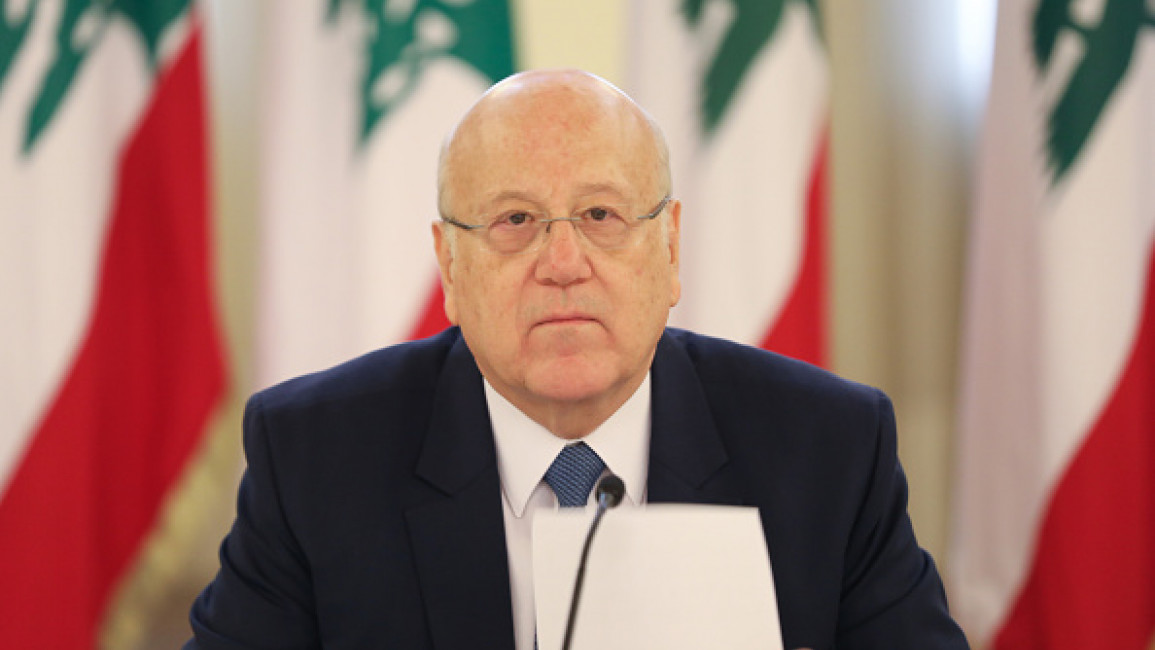Lebanon MPs to regain immunity in Beirut blast probe following new parliament session
Lebanese Prime Minister Najib Mikati announced he would open an extraordinary parliamentary session on Wednesday, extending immunity for MPs wanted in the Beirut port blast investigation.
Mikati said that the extraordinary parliamentary session would start "immediately" and would last until the date of the regular parliamentary session. He added that the cabinet would reconvene to discuss the proposed 2022 budget, which will be ready in two days.
Lebanon's cabinet has not met for almost three months, paralysed by disagreements over the port blast investigation. The powerful Iran-backed militia group Hezbollah and the Amal movement have boycotted cabinet meetings, demanding an end to the investigation which they have called "politicised".
More than 17 months after the Beirut port blast - which killed over 214 people and wounded 6,500 - no one has been charged in relation to the explosion. The investigating judge, Tarek Bitar, has issued a summons for high-ranking officials such as former PM Hassan Diab and current security chief Abbas Ibrahim, but they have refused to show for questioning.
Bitar issued an arrest warrant for former Minister of Defense Ali Hassan Khalil after he refused to respond to a summons for questioning in October. However, Lebanese authorities refused to execute the warrant, citing the parliamentary immunity given to MPs while the legislative body is in session.
Lebanon's last parliamentary session ended in the new year, depriving MPs of the parliamentary immunity that authorities said prevented them from acting on arrest warrants.
The opening of the extraordinary session will once again give MPs parliamentary immunity. Lebanese legal monitor Legal Agenda said that the session is designed to "continue to obstruct the work of the investigative judge… by preventing the prosecution of MPs against whom arrest warrants have been issued".
Mikati said that the new session will be debating the 2022 budget, which he called a pre-requisite for any sort of aid package from the International Monetary Fund (IMF). Lebanon has been engaged in on-off negotiations with the IMF since the beginning of its economic meltdown in 2019.
No significant progress in the negotiations has been made, as the IMF is asking for a number of economic reforms and a degree of transparency that the Lebanese government has been unable to deliver.
On Tuesday, a day before Mikati's announcement, the Lebanese currency dropped to an all-time low of 30,000 liras to the dollar - a 95 percent decrease from the official exchange rate. As a result of the two-years long economic crisis, three-quarters of Lebanon's population has fallen below the poverty line.


![President Pezeshkian has denounced Israel's attacks on Lebanon [Getty]](/sites/default/files/styles/image_684x385/public/2173482924.jpeg?h=a5f2f23a&itok=q3evVtko)



 Follow the Middle East's top stories in English at The New Arab on Google News
Follow the Middle East's top stories in English at The New Arab on Google News


